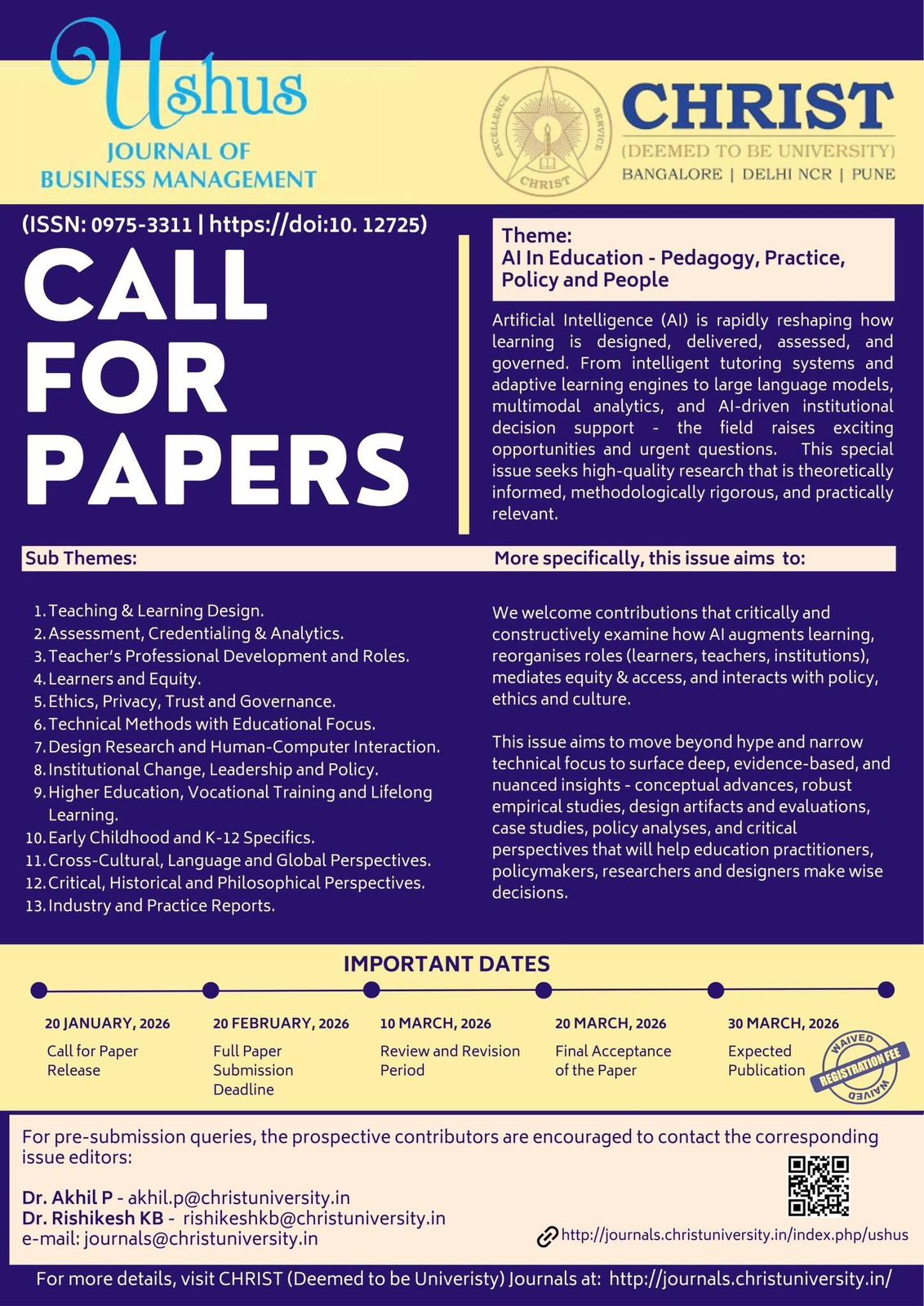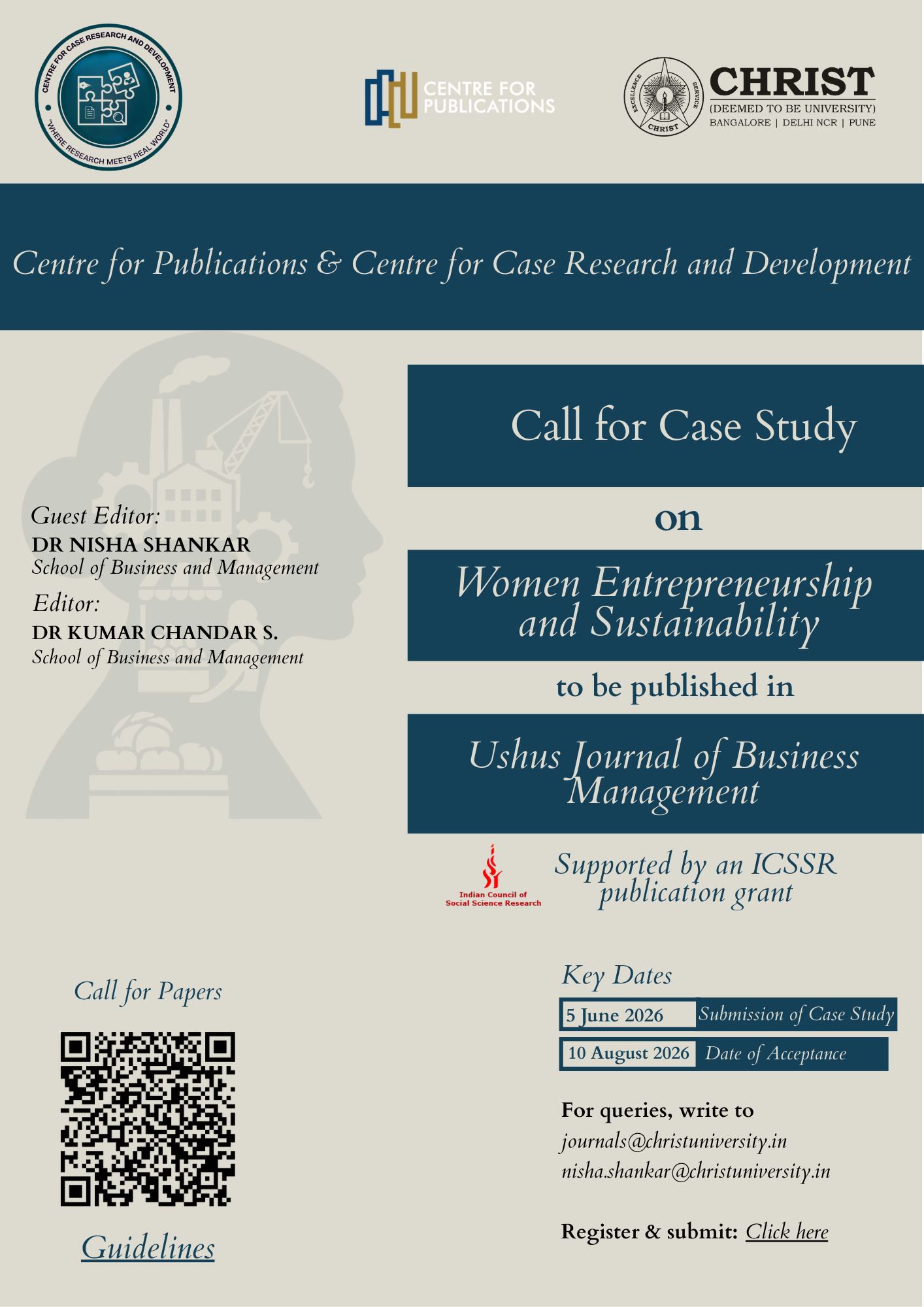The Case of Onboarding Process at Company X
DOI:
https://doi.org/10.12725/ujbm.40.5Abstract
Within an organisation, changes are endless.For an organisation to grow and flourish, changes are necessary and inevitable.Although the significance of change management and organisational development has been established, organisations always face resistance and challenges towards the same. Change interventions in an organization are of varied nature and can be classified as follows: strategic, techno structure, human resource management and human process interventions. The onboarding process is related to work design and refers to the procedure in which newly joined employees are given orientation about the company’s culture, policies and other necessary documentation that is entailed as being part of that company. This process can be viewed from two perspectives: from the employer’s point of view and the new employees’ point of view. This case study attempts to analyse the benefits and shortcomings of a temporary and permanent change of the onboarding process in companies.
References
Barends, E. (2013, January 28). Sage Journals. Retrieved from Sagepub Website: http://jab.sagepub.com/content/50/1/5.abstract
Barrett, F.J. & Fry, R.E. (2005).Appreciative Inquiry: A Positive Approach to Building Cooperative Capacity. Chagrin Falls, OH: Taos Institute.
Bright, D. S., Powley, E. H., Fry, R.E. & Barrett, F.J. (2011). Thegenerative potential of cynical conversations. In Zandee, D., Cooperrider, D.L. & Avital, M. (Eds.). Generative Organization: Advances in Appreciative Inquiry, Vol. 4 (in press). Bingley, England: Emerald Publishing.
Bushe, G.R. (2011). Generativity and the transformational potential of appreciative inquiry. In Zandee, D. Cooperrider, D.L. & Avital, M. (eds) Generative Organization: Advances in Appreciative Inquiry, Vol.4 (in press). Bingley, England: Emerald Publishing.
Fineman, S. (2006). On being positive: Concerns and counterpoints. Academy of Management Review, 31(2), 270‐291.
Fisher, C. D. (1985). Social support and adjustment to work: A longitudinal study. Journal of Management, 11, 39–53.
French, W. & Bell, C. (1999). Organization development: Behavioural science interventions for organization improvement. New Jersey: Prentice Hall.
Kammeyer-Mueller, J. D., &Wanberg, C. R. (2003). Unwrapping the organizational entry process: Disentangling multiple antecedents and their pathways to adjustment. Journal of Applied Psychology, 88, 779–794.
Oliver, C. (2005). Critical appreciative inquiry as intervention in organisational discourse. In Peck, E. (ed.) Organisational Development In Healthcare: Approaches, Innovations, Achievements (205‐218). Oxford: Radcliffe Press.
Voet, J. v. (2015). Change Leadership and Public Sector Organizational Change: Examining the Interactions of Transformational Leadership Style and Red Tape. The American Review of Public Administration.



